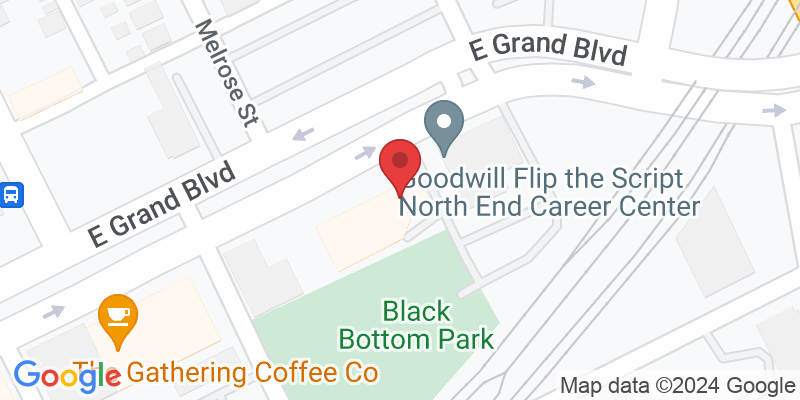Real Life Business Blog

How to Balance Optimism and Realism as a Minority Entrepreneur
How to Balance Optimism and Realism as a Minority Entrepreneur
In the dynamic landscape of entrepreneurship, minority business owners face unique challenges that require both unwavering optimism and clear-eyed realism. This delicate balance isn't just helpful it's essential for sustainable success and resilience in an environment where the odds are often stacked against you.
The Unique Balancing Act for Minority Entrepreneurs
Entrepreneurship is inherently challenging, but minority entrepreneurs navigate additional hurdles that their counterparts may not experience. According to recent studies, only 21% of all employer firms in the United States are minority-owned, despite minorities representing a significantly larger portion of the population. This disparity highlights the structural obstacles that require both optimistic vision and realistic assessment.
The journey of minority entrepreneurship demands a special kind of balance one that acknowledges existing barriers while maintaining the confidence to overcome them. Let's explore how to master this crucial equilibrium.
Why Pure Optimism Isn't Enough
Optimism is often celebrated as the entrepreneur's most valuable trait. It fuels resilience, attracts supporters, and maintains motivation during difficult times. For minority entrepreneurs, optimism serves as a vital shield against discouragement when facing systemic challenges.
However, unchecked optimism comes with significant risks:
The Pitfalls of Unchecked Optimism
Overlooking Real Barriers: Excessive optimism can lead to underestimating the very real obstacles that minority entrepreneurs face in accessing capital, networks, and opportunities.
Unrealistic Expectations: Setting goals based solely on optimistic projections rather than market realities can lead to disappointment and resource depletion.
Decision-Making Biases: An overly positive outlook may cause entrepreneurs to overestimate success probabilities and underestimate risks, leading to poor strategic choices.
As one entrepreneur noted in a Forbes article, the ideal leadership approach might be "60% realistic and 40% optimistic," allowing business owners to "stay humble and make decisions based on facts, rather than on gut feelings or aspirations."
Why Pure Realism Can Be Limiting
Conversely, an exclusively realistic approach while seemingly prudent can be equally problematic for minority entrepreneurs:
The Limitations of Pure Realism
Innovation Barriers: Excessive caution can prevent taking the calculated risks necessary for innovation and market disruption.
Motivation Challenges: Focusing solely on obstacles and challenges can diminish enthusiasm and create a self-fulfilling prophecy of limited success.
Missing Opportunities: An overly conservative approach might cause entrepreneurs to miss windows of opportunity that require bold action.
Finding Your Balance: Practical Strategies
Achieving the optimal balance between optimism and realism doesn't happen automatically. It requires intentional practices and mindful approaches tailored to the unique experience of minority entrepreneurship.
1. Practice Realistic Optimism
Realistic optimism combines positive expectations with honest assessment. This means:
Acknowledging challenges openly while maintaining confidence in your ability to navigate them
Celebrating small wins while staying focused on larger goals
Recognizing that setbacks are temporary while learning valuable lessons from them
2. Surround Yourself with Truth-Tellers
Creating a diverse advisory network is especially vital for minority entrepreneurs. Seek connections with:
Mentors who understand your specific challenges as a minority business owner
Industry experts who can provide honest market feedback
Fellow minority entrepreneurs who can share authentic experiences and strategies
Programs like Impact AZ 2025, which helps minority entrepreneurs build a "brain trust" of trusted advisors, demonstrate the power of this approach. As their program materials state, having the right connections helps minority business owners "close gaps" in their growth journey.
3. Use Data to Ground Your Vision
Balance inspirational thinking with evidence-based decision-making:
Conduct thorough market research before major business moves
Set measurable benchmarks to track progress objectively
Use financial projections based on conservative assumptions
Research from Faster Capital suggests entrepreneurs should "identify and analyze the possible scenarios and outcomes of their actions and decisions" and "prepare contingency plans and mitigation strategies for the worst-case scenarios." This approach allows for optimism about growth while preparing realistically for challenges.
4. Develop Context-Specific Mindsets
Different business situations require different balances of optimism and realism:
Leading teams: Lean toward optimism (while maintaining credibility)
Financial planning: Prioritize realism (while allowing for growth)
Product development: Be ruthlessly realistic (seek critical feedback)
Marketing and sales: Embrace strategic optimism (tell your story confidently)
5. Build Resilience Through Community
For minority entrepreneurs, community connections provide both practical support and psychological resilience:
Join minority-focused business networks and organizations
Participate in accelerator programs designed for underrepresented entrepreneurs
Share challenges and solutions with peers who understand your experience
According to a report on minority entrepreneurship, entrepreneurs from disadvantaged communities succeed when they "overcome life adversity and challenges by establishing a new venture to improve their life transition or career." This success is magnified when supported by strong community connections.
Learning from Success Stories
Inspiration comes from seeing others navigate the balance successfully. Minority entrepreneurs who have mastered the optimism-realism balance offer valuable lessons:
Bettina Huang and Ayesha Barenblat
These entrepreneurs founded companies based on ethical fashion and sustainability principles. While optimistic about changing the fashion industry, they remained realistic about market challenges, building their businesses step-by-step rather than expecting overnight transformation.
Alexander Campaz , Infinite Wave Inc.
Campaz participated in the Empire State Development's Plan for Growth program, which equipped him with essential business skills while maintaining his creative vision. He balanced optimism about preserving the manufacturing legacy of the garment industry with realistic approaches to technological advancement and inclusive business practices.
Zuriel Gibson
As a lupus survivor and entrepreneur who founded The Gibson Lupus ARC, Gibson transformed a devastating health diagnosis into purposeful business creation. Her story demonstrates the power of realistic optimism acknowledging serious challenges while maintaining the vision that "There is purpose in your pain" and "You Can Dream Again."
The Financial Realism Imperative
For minority entrepreneurs, financial realism deserves special attention due to documented funding disparities:
According to McKinsey research, Black entrepreneurs start with approximately $35,000 in capital compared to $107,000 for white entrepreneurs
Only 47% of Black business owners' loan requests are approved, compared with 75% for white business owners
Just 4% of entrepreneurs use investors, grants, or crowdfunding to get their businesses off the ground
These statistics demand realistic financial planning while maintaining optimistic pursuit of available resources. Programs like those offered by the Minority Business Development Agency (MBDA) demonstrate the growing support infrastructure for minority entrepreneurs, having helped businesses secure over $1.2 billion in capital.
The Psychological Balance
Beyond business strategy, maintaining personal well-being requires its own optimism-realism balance:
Acknowledge emotional reality: Recognize the stress and challenges of entrepreneurship, particularly for minorities
Practice mindfulness: Take time to reflect on both positive developments and needed improvements
Balance positive and negative emotions: Allow yourself to experience the full range of feelings without being defined by them
Research from Penn State Extension suggests that successful leaders "balance speaking on harsh reality while inspiring perseverance," recognizing that "optimistic people are often better at coping because they are not denying that they are facing challenging and frightening situations."
Conclusion: Your Balanced Path Forward
Minority entrepreneurship in 2025 requires a sophisticated approach that harnesses both optimism and realism. The challenges are real, documented, and significant yet so are the opportunities for breakthrough success and community impact.
The path forward isn't about choosing between rose-colored glasses or doom-and-gloom pessimism. It's about developing a nuanced perspective that allows you to:
See obstacles clearly without being defined by them
Dream boldly while planning methodically
Build realistically while inspiring authentically
Acknowledge difficulties while celebrating progress
By mastering this crucial balance, minority entrepreneurs can transform challenges into stepping stones toward sustainable business success and meaningful impact. The landscape may present unique obstacles, but with strategic optimism grounded in clear-eyed realism, minority entrepreneurs are increasingly positioned not just to participate in the economy, but to lead it into the future.
Your entrepreneurial journey will have both sunshine and storms. By balancing optimism with realism, you'll be equipped not just to weather those storms, but to harness their power for extraordinary growth and impact.

How to Balance Optimism and Realism as a Minority Entrepreneur
How to Balance Optimism and Realism as a Minority Entrepreneur
In the dynamic landscape of entrepreneurship, minority business owners face unique challenges that require both unwavering optimism and clear-eyed realism. This delicate balance isn't just helpful it's essential for sustainable success and resilience in an environment where the odds are often stacked against you.
The Unique Balancing Act for Minority Entrepreneurs
Entrepreneurship is inherently challenging, but minority entrepreneurs navigate additional hurdles that their counterparts may not experience. According to recent studies, only 21% of all employer firms in the United States are minority-owned, despite minorities representing a significantly larger portion of the population. This disparity highlights the structural obstacles that require both optimistic vision and realistic assessment.
The journey of minority entrepreneurship demands a special kind of balance one that acknowledges existing barriers while maintaining the confidence to overcome them. Let's explore how to master this crucial equilibrium.
Why Pure Optimism Isn't Enough
Optimism is often celebrated as the entrepreneur's most valuable trait. It fuels resilience, attracts supporters, and maintains motivation during difficult times. For minority entrepreneurs, optimism serves as a vital shield against discouragement when facing systemic challenges.
However, unchecked optimism comes with significant risks:
The Pitfalls of Unchecked Optimism
Overlooking Real Barriers: Excessive optimism can lead to underestimating the very real obstacles that minority entrepreneurs face in accessing capital, networks, and opportunities.
Unrealistic Expectations: Setting goals based solely on optimistic projections rather than market realities can lead to disappointment and resource depletion.
Decision-Making Biases: An overly positive outlook may cause entrepreneurs to overestimate success probabilities and underestimate risks, leading to poor strategic choices.
As one entrepreneur noted in a Forbes article, the ideal leadership approach might be "60% realistic and 40% optimistic," allowing business owners to "stay humble and make decisions based on facts, rather than on gut feelings or aspirations."
Why Pure Realism Can Be Limiting
Conversely, an exclusively realistic approach while seemingly prudent can be equally problematic for minority entrepreneurs:
The Limitations of Pure Realism
Innovation Barriers: Excessive caution can prevent taking the calculated risks necessary for innovation and market disruption.
Motivation Challenges: Focusing solely on obstacles and challenges can diminish enthusiasm and create a self-fulfilling prophecy of limited success.
Missing Opportunities: An overly conservative approach might cause entrepreneurs to miss windows of opportunity that require bold action.
Finding Your Balance: Practical Strategies
Achieving the optimal balance between optimism and realism doesn't happen automatically. It requires intentional practices and mindful approaches tailored to the unique experience of minority entrepreneurship.
1. Practice Realistic Optimism
Realistic optimism combines positive expectations with honest assessment. This means:
Acknowledging challenges openly while maintaining confidence in your ability to navigate them
Celebrating small wins while staying focused on larger goals
Recognizing that setbacks are temporary while learning valuable lessons from them
2. Surround Yourself with Truth-Tellers
Creating a diverse advisory network is especially vital for minority entrepreneurs. Seek connections with:
Mentors who understand your specific challenges as a minority business owner
Industry experts who can provide honest market feedback
Fellow minority entrepreneurs who can share authentic experiences and strategies
Programs like Impact AZ 2025, which helps minority entrepreneurs build a "brain trust" of trusted advisors, demonstrate the power of this approach. As their program materials state, having the right connections helps minority business owners "close gaps" in their growth journey.
3. Use Data to Ground Your Vision
Balance inspirational thinking with evidence-based decision-making:
Conduct thorough market research before major business moves
Set measurable benchmarks to track progress objectively
Use financial projections based on conservative assumptions
Research from Faster Capital suggests entrepreneurs should "identify and analyze the possible scenarios and outcomes of their actions and decisions" and "prepare contingency plans and mitigation strategies for the worst-case scenarios." This approach allows for optimism about growth while preparing realistically for challenges.
4. Develop Context-Specific Mindsets
Different business situations require different balances of optimism and realism:
Leading teams: Lean toward optimism (while maintaining credibility)
Financial planning: Prioritize realism (while allowing for growth)
Product development: Be ruthlessly realistic (seek critical feedback)
Marketing and sales: Embrace strategic optimism (tell your story confidently)
5. Build Resilience Through Community
For minority entrepreneurs, community connections provide both practical support and psychological resilience:
Join minority-focused business networks and organizations
Participate in accelerator programs designed for underrepresented entrepreneurs
Share challenges and solutions with peers who understand your experience
According to a report on minority entrepreneurship, entrepreneurs from disadvantaged communities succeed when they "overcome life adversity and challenges by establishing a new venture to improve their life transition or career." This success is magnified when supported by strong community connections.
Learning from Success Stories
Inspiration comes from seeing others navigate the balance successfully. Minority entrepreneurs who have mastered the optimism-realism balance offer valuable lessons:
Bettina Huang and Ayesha Barenblat
These entrepreneurs founded companies based on ethical fashion and sustainability principles. While optimistic about changing the fashion industry, they remained realistic about market challenges, building their businesses step-by-step rather than expecting overnight transformation.
Alexander Campaz , Infinite Wave Inc.
Campaz participated in the Empire State Development's Plan for Growth program, which equipped him with essential business skills while maintaining his creative vision. He balanced optimism about preserving the manufacturing legacy of the garment industry with realistic approaches to technological advancement and inclusive business practices.
Zuriel Gibson
As a lupus survivor and entrepreneur who founded The Gibson Lupus ARC, Gibson transformed a devastating health diagnosis into purposeful business creation. Her story demonstrates the power of realistic optimism acknowledging serious challenges while maintaining the vision that "There is purpose in your pain" and "You Can Dream Again."
The Financial Realism Imperative
For minority entrepreneurs, financial realism deserves special attention due to documented funding disparities:
According to McKinsey research, Black entrepreneurs start with approximately $35,000 in capital compared to $107,000 for white entrepreneurs
Only 47% of Black business owners' loan requests are approved, compared with 75% for white business owners
Just 4% of entrepreneurs use investors, grants, or crowdfunding to get their businesses off the ground
These statistics demand realistic financial planning while maintaining optimistic pursuit of available resources. Programs like those offered by the Minority Business Development Agency (MBDA) demonstrate the growing support infrastructure for minority entrepreneurs, having helped businesses secure over $1.2 billion in capital.
The Psychological Balance
Beyond business strategy, maintaining personal well-being requires its own optimism-realism balance:
Acknowledge emotional reality: Recognize the stress and challenges of entrepreneurship, particularly for minorities
Practice mindfulness: Take time to reflect on both positive developments and needed improvements
Balance positive and negative emotions: Allow yourself to experience the full range of feelings without being defined by them
Research from Penn State Extension suggests that successful leaders "balance speaking on harsh reality while inspiring perseverance," recognizing that "optimistic people are often better at coping because they are not denying that they are facing challenging and frightening situations."
Conclusion: Your Balanced Path Forward
Minority entrepreneurship in 2025 requires a sophisticated approach that harnesses both optimism and realism. The challenges are real, documented, and significant yet so are the opportunities for breakthrough success and community impact.
The path forward isn't about choosing between rose-colored glasses or doom-and-gloom pessimism. It's about developing a nuanced perspective that allows you to:
See obstacles clearly without being defined by them
Dream boldly while planning methodically
Build realistically while inspiring authentically
Acknowledge difficulties while celebrating progress
By mastering this crucial balance, minority entrepreneurs can transform challenges into stepping stones toward sustainable business success and meaningful impact. The landscape may present unique obstacles, but with strategic optimism grounded in clear-eyed realism, minority entrepreneurs are increasingly positioned not just to participate in the economy, but to lead it into the future.
Your entrepreneurial journey will have both sunshine and storms. By balancing optimism with realism, you'll be equipped not just to weather those storms, but to harness their power for extraordinary growth and impact.
What are the benefits of business coaching?
Business coaches help entrepreneurs develop within their personal and business lives, so their businesses can thrive.
This includes identifying strengths and weaknesses, setting personal and professional goals and targets, and holding
the entrepreneur accountable to ensure those goals are reached.
What is Real Life XP?
Real Life XP is our free entrepreneur acceleration course, available in the Real Life Business Builders community. The
three modules in the course focuses first on the entrepreneur mindset, then business systems and processes, and finally building business credit and obtaining business financing.
This course is desgned to help entrepreneurs of all levels.
What is The Real Life Business Builder?
The Real Life Business Builder is an all-in-one CRM and marketing system that we help implement for entrepreneurs to build their contact list and nurture relationships with leads and customers. The system includes a website/funnel builder, email and SMS marketing and the option to brand the software as your own and resale it for profit. With a price as low as $80 per month, you have more than enough room to spend money on ads, which we will also run for you, if need be.
What else do you offer?
Real Life Business Solutions offers a wide range of products and services, including eBooks, workbooks, courses, and other educational material as well as business plans, marketing plans, and specialized business solutions.
Is group coaching or 1-on-1 coaching available?
Yes, we offer different coaching programs to accomodate coaches who enjoy building in a community and those who
are more comfortable in a more personal setting.
Is there some type of guarantee?
Yes. Real Life Business Solutions provides more than enough tools and resources to help entrepreneurs grow into who they need to become to be successful, but doing the work is still up to the client. While we can't guarantee specific results, we can guarantee that we will provide all of the things we promise or you will receive all of your money back.
Do I have to own a business to join the Real Life Business Builder Community?
No. The Real Life Business Builder Community is designed to help entrepreneurs and aspiring entrepreneurs. As long as you are interested in business and business conversations, the community will be of value to you.
Why are there no prices on the website?
Due to the unique nature of every person and
every business, consulting prices cannot be quoted
until we have our initial strategy session. We offer
some programs, with prices, to offer a starting
point, but any personalization will require direct communication before a proposal is drawn up.
Contact Us
(313) 883-9664
Real Life Business Solutions 2785 E
Grand Blvd, Suite 381Detroit, MI 48211
© 2024 Real Life Business Solutions, LLC -
All Rights Reserved · Privacy policy
What are the benefits of business coaching?
Business coaches help entrepreneurs develop within their personal and business lives, so their businesses can thrive.
This includes identifying strengths and weaknesses, setting personal and professional goals and targets, and holding
the entrepreneur accountable to ensure those goals are reached.
What is Real Life XP?
Real Life XP is our free entrepreneur acceleration course, available in the Real Life Business Builders community. The
three modules in the course focuses first on the entrepreneur mindset, then business systems and processes, and finally building business credit and obtaining business financing.
This course is desgned to help entrepreneurs of all levels.
What is The Real Life Business Builder?
The Real Life Business Builder is an all-in-one CRM and marketing system that we help implement for entrepreneurs to build their contact list and nurture relationships with leads and customers. The system includes a website/funnel builder, email and SMS marketing and the option to brand the software as your own and resale it for profit. With a price as low as $80 per month, you have more than enough room to spend money on ads, which we will also run for you, if need be.
What else do you offer?
Real Life Business Solutions offers a wide range of products
and services, including eBooks, workbooks, courses, and other educational material as well as business plans, marketing plans, and specialized business solutions.
Is group coaching or 1-on-1 coaching available?
Yes, we offer different coaching programs to accommodate clients who enjoy building in a community and those who
are more comfortable in a more personal setting.
Is there some type of guarantee?
Yes. Real Life Business Solutions provides more than enough tools and resources to help entrepreneurs grow into who they need to become to be successful, but doing the work is still up to the client. While we can't guarantee specific results, we can guarantee that we will provide all of the things we promise or you will receive all of your money back.
Do I have to own a business to join the Real Life Business Builder Community?
No. The Real Life Business Builder Community is designed to help entrepreneurs and aspiring entrepreneurs. As long as you are interested in business and business conversations, the community will be of value to you.
Why are there no prices on the website?
Due to the unique nature of every person and every business, consulting prices cannot be quoted until we have our initial strategy session. We offer some programs, with prices, to offer
a starting point, but any personalization will require direct communication before a proposal is drawn up.
Contact Us
(313) 883-9664
Real Life Business Solutions
2785 E Grand Blvd, Suite 381
Detroit, MI 48211
© 2024 Real Life Business Solutions, LLC - All Rights Reserved · Privacy policy




